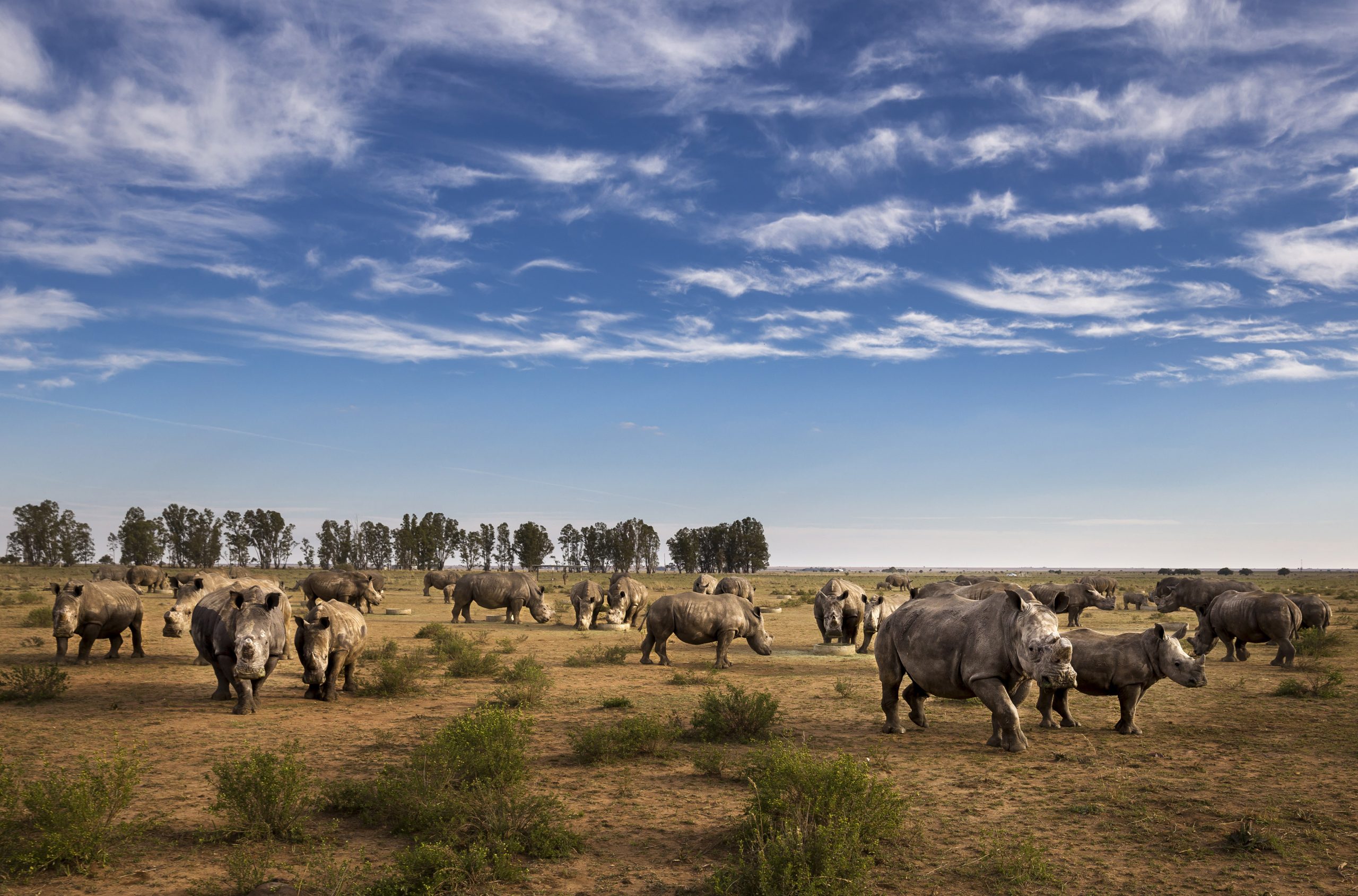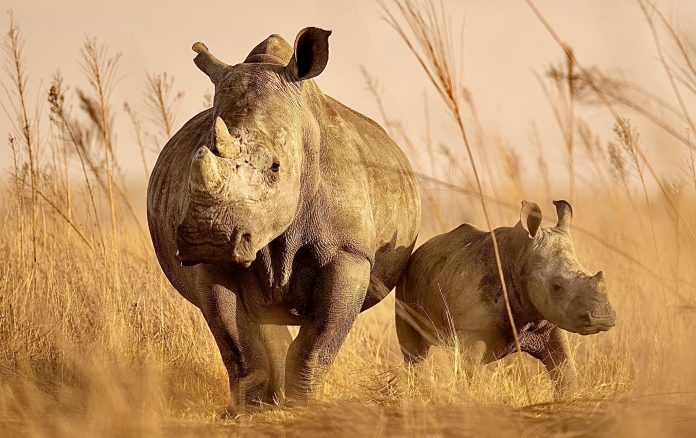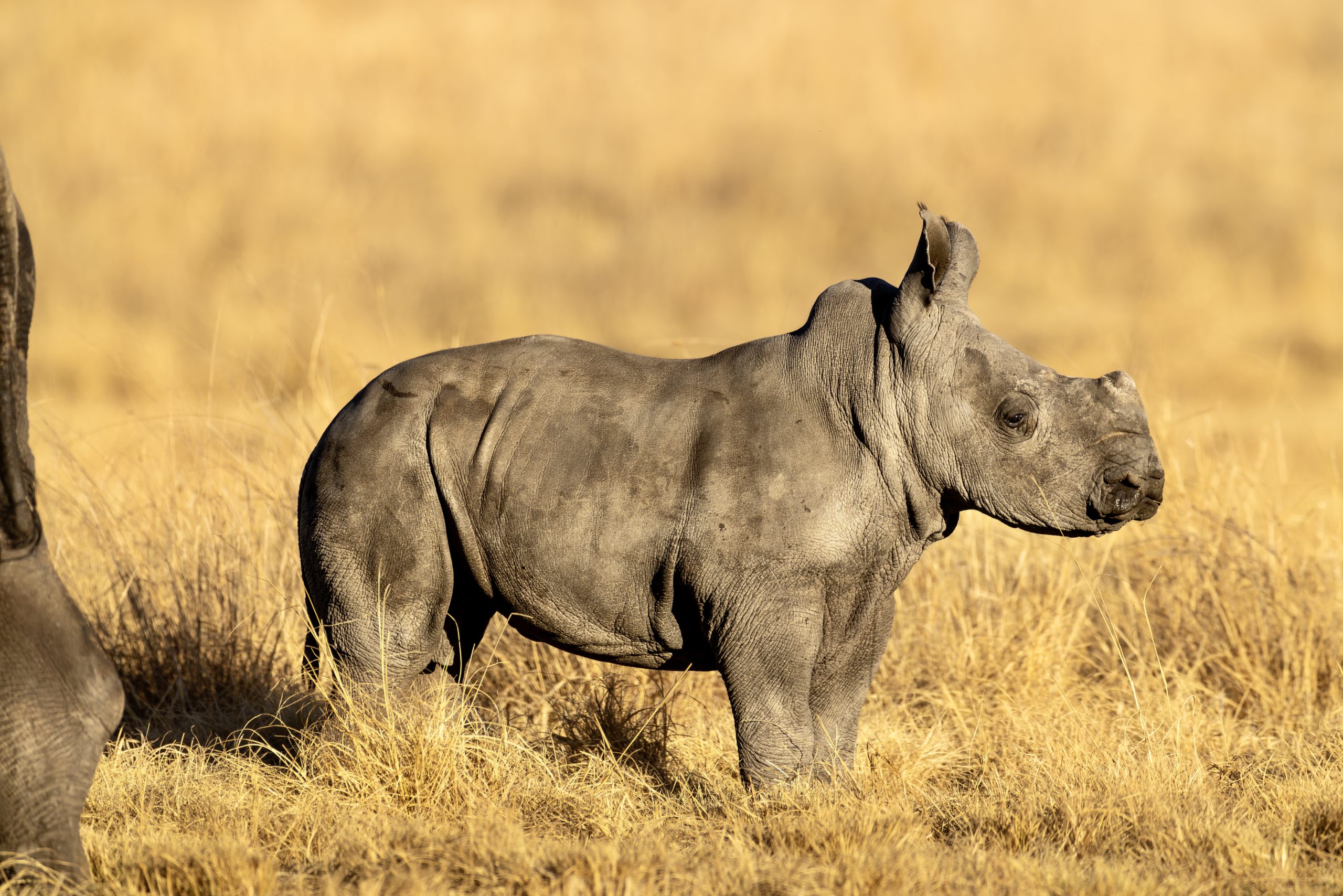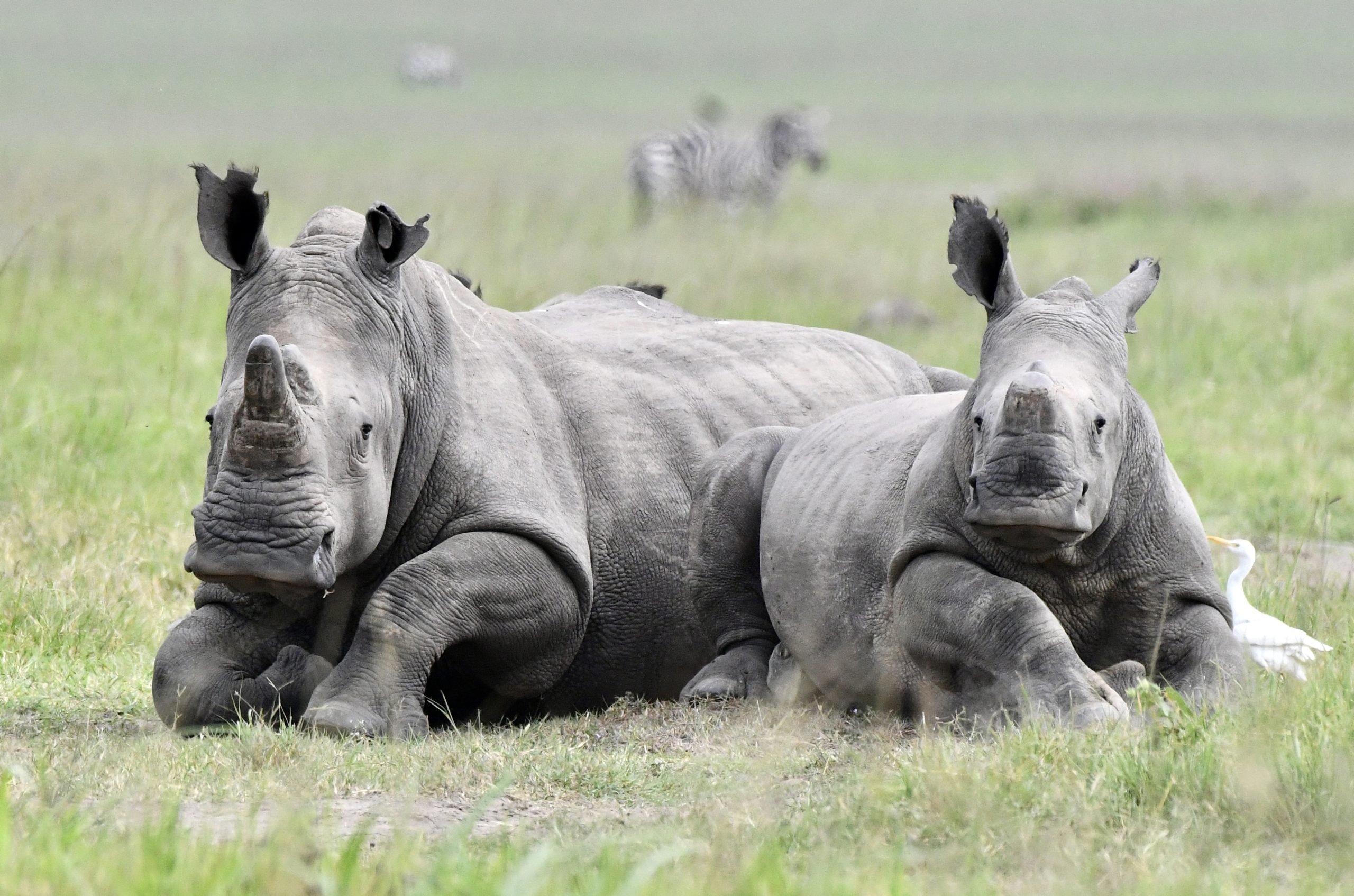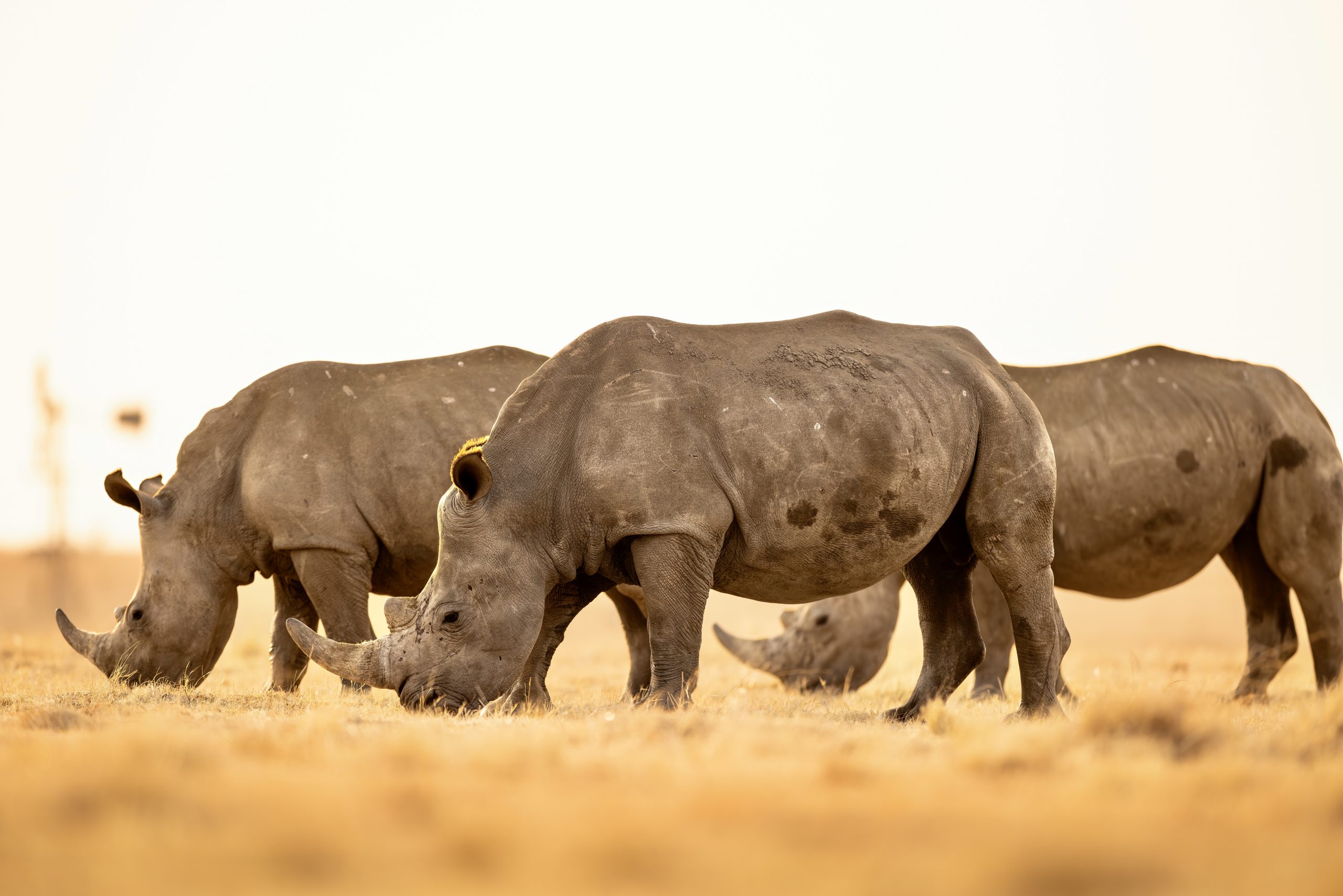Photos by: Brent Stirton & African Parks
African Parks, a conservation NGO that manages 22 protected areas in partnership with 12 governments throughout Africa, announced that it will rewild over 2,000 southern white rhinos over the next 10 years.
The NGO has stepped in as the new owner of the world’s largest private captive rhino breeding operation, “Platinum Rhino,” a 7,800- hectare property in the North West province of South Africa, which currently holds 2,000 southern white rhino, representing up to 15% of the world’s remaining wild rhino population.
As a result of financial stress, Platinum Rhino was put up for auction on April 26th of this year, but did not receive any bids, putting these rhinos at serious risk of poaching and fragmentation. Given African Parks’ experience in effectively managing protected areas and carrying out wildlife translocations at scale, including bringing rhino back to Rwanda, Malawi, and the Democratic Republic of Congo, African Parks was approached by numerous concerned individuals from the conservation sector to provide a solution to prevent a potential conservation crisis, and to help secure the future for a species in crisis.
After conducting a thorough due diligence and with the support of the South African Government, as well as having secured emergency funding to make the transaction possible, African Parks agreed to purchase the farm and all 2,000 rhino.
African Parks has one clear objective: to rewild these rhinos over the next 10 years to well-managed and secure areas, establishing or supplementing strategic populations, thereby de-risking the future of the species. The breeding program will be phased out and the project will end once all the rhino are released into the wild. This is one of the largest continent-wide rewilding endeavors to occur for any species.
“African Parks had no intention of being the owner of a captive rhino breeding operation with 2,000 rhinos. However, we fully recognize the moral imperative of finding a solution for these animals so that they can once again play their integral role in fully functioning ecosystems,” said Peter Fearnhead, CEO of African Parks.
“The scale of this undertaking is simply enormous, and therefore daunting. However, it is equally one of the most exciting and globally strategic conservation opportunities,” continued Fearnhead. “We will be working with multiple governments, as well as funding partners and conservation organizations who are committed to making this rewilding vision a reality.”
For over 20 years, African Parks has worked with governments and local communities to ensure that protected areas, and their vital ecosystem services, are secured for the future.
“On behalf of the Department of Forestry, Fisheries and Environment, I would like to congratulate African Parks and Mr. Hume for reaching this important agreement which facilitates a conservation solution for the rhino currently in a captive facility,” said Ms. Barbara Creecy, the South African Minister of Forestry, Fisheries and Environment.
“Our Government is guided in our approach to conservation by the UN Convention on Biodiversity and our own white paper. In this regard, we are ready to support African Parks and other partners with technical and scientific advice in developing a conservation solution that includes translocating the animals over a period of time to suitable parks and community conservancies in South Africa and on the African continent.”
The white rhino is under extreme pressure, especially in South Africa, due to poaching. Rhino historically consisted of two subspecies: the southern white and the northern white. The northern white is functionally extinct, with just two non-breeding females in captivity in Kenya. Southern white rhino reached an all-time low of only 30 to 40 individuals in the 1930’s, but through effective conservation measures, increased to approximately 20,000 individuals by 2012. However, with the dramatic rise in poaching for their horns for the illegal wildlife trade, their numbers have fallen to below 13,000 individuals today.
